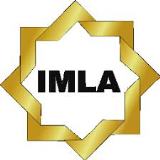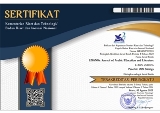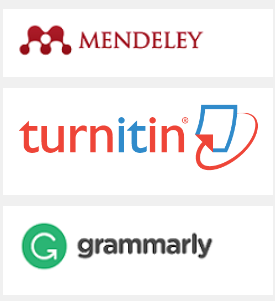The Teaching of Arabic Studies in Nigerian Universities and the Underrepresentation of Females in the Field
DOI:
https://doi.org/10.18326/lisania.v8i2.155-169Keywords:
arabic studies, female participation, nigerian universities, gender equity, curriculum reformAbstract
This paper investigates the teaching of Arabic studies in Nigerian universities, focusing on the challenges and factors contributing to the underrepresentation of female students and educators. Arabic holds significant religious, cultural, and historical value in Nigeria; however, female participation in the field remains limited. Through an in-depth exploration of societal, cultural, and institutional barriers, this study identifies major obstacles that discourage women from enrolling in and pursuing careers in Arabic studies. Key barriers include restrictive gender norms, minimal female faculty representation, and perceptions of limited career prospects, which collectively reinforce gender disparities in the field. The study also reviews current initiatives that promote gender equity in Arabic studies and proposes actionable strategies, such as curriculum reform, community outreach, and mentorship programs, to enhance female enrollment and retention. By addressing these socio-cultural and institutional challenges, the paper seeks to encourage policies and reforms that foster inclusivity, support female advancement, and improve the overall quality of Arabic education in Nigeria. The study concludes with recommendations aimed at achieving gender equity and strengthening the academic landscape of Arabic studies in Nigerian universities, thereby contributing to a more balanced and inclusive academic field.
References
Adamu, M., & Hassan, Y. (2018). The spread of Arabic language and culture in West Africa: A historical overview. Journal of African Languages and Culture, 15(3), 125-140.
Ahmed, S. (1987). History of Islam and Arabic Culture in Nigeria. Dar al-Fikr al-Arabi.
Ahmed, Y. (1987). The role of Arabic in Islamic education in Northern Nigeria. Kano Studies, 4(2), 45-56.
Alabi, A. (2019). Arabic education and its challenges in Nigerian universities. Journal of Islamic Studies, 22(1), 67-85.
Alkali, M. S. (2015). Curriculum reform in Arabic studies: Addressing the needs of contemporary students. Journal of Islamic and Arabic Studies, 10(2), 89-102.
Amali, H., & Bello, M. (2012). Gender disparities in Arabic studies in Nigerian universities: Causes and solutions. Nigerian Journal of Gender Studies, 8(1), 21-34.
Balogun, I. (2011). Historical links between Nigeria and the Arab world: A cultural analysis. African Journal of Islamic Studies, 18(1), 32-47.
Balogun, I. A. (2011). Arabic studies in Nigeria: Challenges and prospects. African Journal of Islamic Studies, 4(1), 35-47.
Balogun, K. A. (2011). Islamic scholarship in Nigeria: Historical background and future prospects. University Press.
Bello, A., & Amina, S. (2021). Mentorship and academic empowerment of female students in Nigerian universities: Case study of Arabic studies. Journal of Gender Studies, 16(2), 78-94.
Ebo, A. (2001). Arabic and Islamic education in Nigeria: Origins and evolution. Journal of Nigerian Education, 12(4), 201-216.
Ebo, H. (2001). The Arabic language in Nigeria: A historical study. University of Ibadan.
Garag, A. (1995). Islam and education in West Africa: The role of the Arabic language. Center for African Studies.
Garag, M. (1995). Quranic schools and Arabic literacy in West Africa: A cultural perspective. Journal of West African Cultural Studies, 8(2), 29-41.
Hassan, M., & Umar, T. (2022). Financial support for female students in Arabic studies: The role of scholarships and aid programs. International Journal of Educational Finance, 30(1), 102-118.
Kani, M. (2010). The role of Arabic in the intellectual history of Northern Nigeria. Journal of Islamic Studies, 18(2), 150-169.
Khalid, R., & Salim, Y. (2022). Reforming the Arabic studies curriculum in Nigeria: Integrating modern applications to attract diverse students. Nigerian Journal of Higher Education and Language, 14(3), 45-58.
Musa, I., & Ibrahim, R. (2021). Community engagement and advocacy for female participation in Islamic scholarship. Journal of Social Change in Education, 12(2), 104-120.
Musa, I., & Yusuf, T. (2022). Contemporary challenges in Arabic studies in Nigeria: A gender perspective. Nigerian Journal of Higher Education Studies, 30(2), 45-61.
Musa, I., & Ibrahim, R. (2023). Gender-sensitive policies in Nigerian universities: Enhancing accessibility for female students in Arabic studies. Journal of Educational Policy, 18(1), 55-72.
Nwajiuba, C. A. (2011). Socio-cultural determinants of gender disparity in Nigerian education. Gender and Education, 23(6), 67-84.
Okoro, P., & Ali, M. (2022). Safe learning environments and flexible study options: Supporting female students in Arabic studies. African Journal of Gender and Education, 22(1), 33-50.
Olayiwola, F., & Musa, T. (2023). Interactive teaching methods and student engagement in Arabic language programs. International Journal of Language Education, 25(2), 69-85.
Shehu, Y. (2009). The role of women in Islamic scholarship in Nigeria. Journal of Islamic Studies and Culture, 5(3), 112-128.
Suleiman, M. (2018). The impact of insurgency on female education in Northern Nigeria. African Journal of Conflict Resolution, 9(2), 75-92.
Umar, M. S. (2003). Islamic education in Nigeria: Trends and prospects. Journal of Religion and Society, 15(2), 97-115.
Umar, Y., & Ibrahim, A. (2021). Community engagement and advocacy for female participation in Islamic scholarship. Journal of Social Change in Education, 12(2), 104-120.
UNESCO. (2012). Gender disparities in education: A Nigerian perspective. Paris: UNESCO Publishing.
Yahaya, M., & Suleiman, N. (2020). Examining barriers to female participation in Arabic studies in Northern Nigeria. African Journal of Education and Gender, 15(2), 121-133.
Yusuf, Z., & Ahmed, K. (2020). Public outreach and media campaigns for promoting women’s roles in Islamic and Arabic studies. Nigerian Journal of Cultural Studies, 28(3), 37-49.
Downloads
Published
Issue
Section
License
Copyright (c) 2024 Tajudeen Yusuf

This work is licensed under a Creative Commons Attribution-NonCommercial-ShareAlike 4.0 International License.






